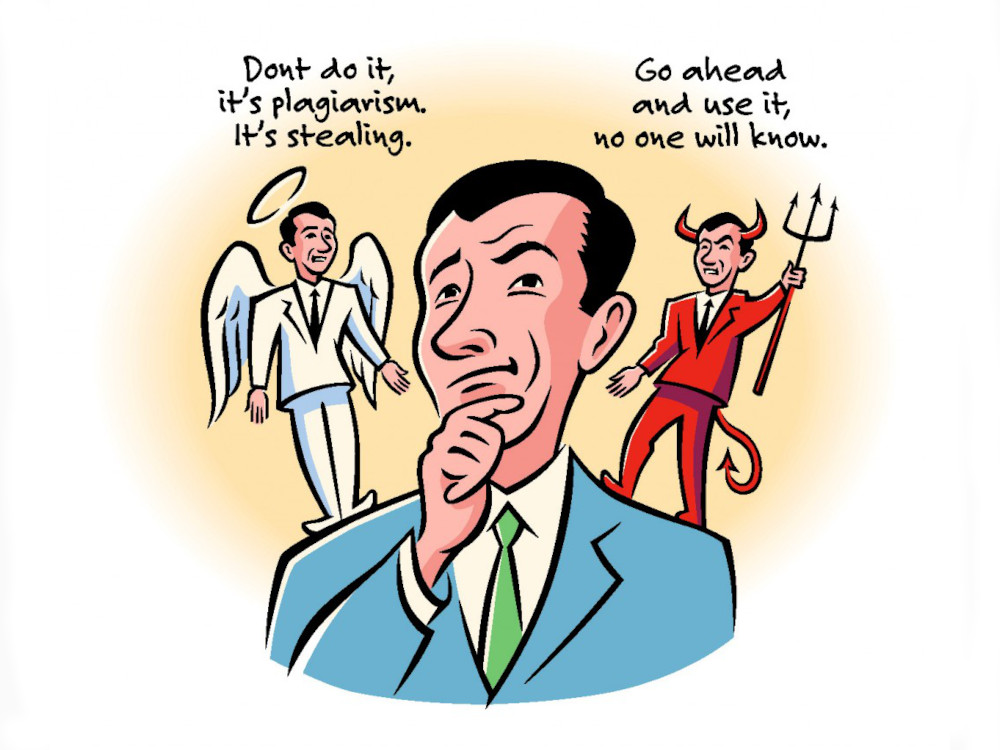For a evangelical Christian, reading the New York Times “Ethicist” column can be a window into a different world, with the Bible and God featuring only bit players (if at all) in the discussion of ethics question raised by readers like “My Spouse Is the Breadwinner. How Should We Divvy Assets in the Divorce?” and “Are People Who Read Magazines Without Paying ‘Stealing’ Their Content?”
But not this week.
“Should I Confront Our Former Minister Over His Plagiarized Sermons?” features a reader’s story of gathering the text of sermons from a former minister to produce a printed book to honour them only to discover an enormous amount of plagiarised content.
It’s an extreme case. “Then we discovered something egregious: He had ‘“‘borrowed‘”‘ great swaths of text from stories, articles and online writing and presented them as his own“.” the reader wrote. “One example involved an amusing story that just happened to be lifted nearly whole from an Eat column in this very magazine.“
The milder – and much more common version – will be ideas and insights about the Bible passage in question. Many ministers consult commentaries. Others will recall what they were taught in college. Some ministers will have sermons from a mentor, in aural form, sometimes in print.
But there are no footnotes to the average sermon. Coming from a journalistic background attribution is important to this writer. The same would be even more important in an academic setting.
But there’s no Chicago or APA manual of style, for sermons. Sometimes a preacher will attribute a thought. Conservative evangelicals might hear John Piper or Don Carson credited. Another flavour of evangelical might hear a thought attributed to Nicky Gumbel or Henri Nouwen. And the journo’s method of crediting the Daily Another Newspaper would get tired very quickly.
The sermon form does not lend itself to attribution.
The Ethicist, Kwame Anthony Appiah, interestingly turned to the Bible. “The authors of the Bible, a product of both oral and scriptural forms of transmission, weren’t shy about borrowed or repurposed material; it isn’t as if Matthew and Luke were footnoting Mark. And later folk preachers freely borrowed from one another. Sermonizers in that tradition prized expressivity more than originality. ‘The arc of the moral universe is long, but it bends toward justice’: That’s the Rev. Dr. Martin Luther King Jr.’s pithier version of something Theodore Parker said more than a century earlier. The language and structure of King’s sermons, tapping into this magpie tradition of oral performance, had many sources.”
The Ethicist’s point is that what is regarded as plagiarism is a convention. So maybe give sermons a pass. The readers asks if just producing one copy of the collected sermons to give to the preacher would be okay – it would avoid exposing his fragrant plagiarism – and stealing other people’s anecdotes goes further than probably most readers of The Other Cheek would accept. the ethicist agreed the anecdote stealing crossed the line.
But most of us in the pew or stackable chair probably accept that we can’t tell where a particular thought about the Bible came from. If it was particularly original, or a newly minted idea may be our preacher will tell us. But not always.
Pic credit: pixy.org

